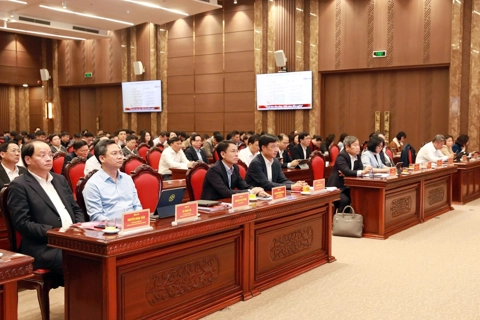How are foreign workers in Vietnam protected by law from having contracts violated?
THE HANOI TIMES — Violation of an employment contract refers to any act by either the employee or the employer that fails to fulfill the agreed-upon terms. What constitutes a violation and how are these cases handled?
Asks: I am a foreign worker currently working in Vietnam. My employer has breached several provisions of the employment contract signed with me. What legal means of redress are available to me?
Asked: To file a proper complaint and protect their rights, employees must first understand what constitutes a violation of the labor contract and the steps involved in the grievance process.
1. Breach of employment contract
An employment contract is a written agreement between the employee and the employer that sets out the rights and obligations of both parties during the employment period.
In practice, however, many breaches of employment contracts occur, which can cause significant damage to the interests of one or both parties.
1.1 Definition of breach of employment contract
A breach of employment contract refers to an act by either party (employer or employee) in which the party fails to perform, improperly or incompletely performs the obligations outlined in the employment contract.
1.2 Acts constituting breaches by employers
Both parties to the employment relationship can commit violations. However, the focus here is on employer violations. Common employer violations include:
- Delayed or non-payment of wages.
- Unlawful unilateral termination of the contract.
- Failure to pay mandatory social and health insurance.
- Non-performance of contractual obligations.
All violations, regardless of the party responsible for the violation, are subject to legal sanctions under Vietnamese labor law.
2. Sanctions against employees for breach of contracts
(Section not included in the original, assuming it's not needed, since the focus is on employer violations.)
3. Sanctions against employers for breach of contracts
Under the 2019 Labor Code and Decree No. 12/2022/ND-CP, violations committed during the execution, amendment, or termination of an employment contract are subject to administrative penalties.
3.1 Sanctions for violations in contract conclusion
Employers may be fined under Article 9 of Decree 12/20K22/ND-CP for:
-
Failure to execute a written employment contract for work lasting one month or more.
- Using an incorrect contract type.
-
Failure to include legally required elements in the contract.
Fines vary depending on the number of employees involved:
US$80–$200: 1–10 employees
$200–400: 11–50 employees
$400–600: 51–100 employees
$600–800: 101–300 employees
$800–1,000: over 300 employees
Additional violations:
-
Retaining personal documents or diplomas, or requiring a bond: $800-1,000.
-
Signing contracts with minors (15-18 years old) without the written consent of a legal guardian: same penalty.
3.2 Sanctions for violations in contract performance
As per Article 11 of Decree 12/2022/ND-CP:
- $40–120: Failure to give the employee 3 days' notice before reassignment, failure to specify the duration of the reassignment, or assignment of work inappropriate to the employee's sex/health.
- $120–280: Moving the workplace without consultation or failing to reinstate employees after a contract suspension.
- $600–1,200: Non-criminal sexual harassment in the workplace.
- $2,000–3,000: Coercion or mistreatment of employees.
3.3 Sanctions for breaches of contract modification or termination
$40–120: Failure to provide written notice of termination.
Other violations related to severance pay, job loss compensation, failure to return documents, or provide requested copies will result in fines as follows:
$40–80: 1–10 employees
$80–200: 11–50 employees
$200–400: 51–100 employees
$400–600: 101–300 employees
$600–800: over 300 employees
Additional penalties:
Failure to consult unions or notify provincial authorities before mass layoffs, or failure to develop a labor utilization plan during business restructuring, will also result in fines ranging from approximately $200-400.
4. Where can an employee file a complaint?
According to Decree No. 24/2018/ND-CP on the resolution of labor-related grievances, employees may file complaints as follows:
Initial complaint: If the employee believes that the employer's action is unlawful and violates the employee's legal rights, the initial complaint should be made directly to the employer.
Second complaint: If the employee is not satisfied with the first resolution, or if there is no response within the statutory time frame, a second complaint may be filed with the Chief Inspector of the Provincial Department of Home Affairs. Filing a Lawsuit: An employee may file a lawsuit directly with the court in any of the following cases:
- Choosing litigation as the first resort.
- Disagreeing with the result of the first or second complaint.
Not receiving a resolution within the statutory period.
5. Forms of complaints
According to Article 6 of Decree 24/2018/ND-CP, complaints may be submitted either in writing or orally. Written complaints must contain the following information:
- Date of the complaint
- Complainant’s full name and address
-
Name and address of the alleged infringer
-
Description of the violation and supporting documentation (if available)
- The complainant's request for redress
-
Complainant's signature or fingerprint
If there is more than one complainant, all must sign and designate a representative to communicate with the authority.
Verbal complaints
The complainant shall meet in person with the appropriate authority.
The official receiving the complaint must assist in the preparation of a written record containing all the information required in a written complaint and obtain the complainant's signature or fingerprint.
For group complaints, a designated representative must sign the written record.
6. Statute of limitations for complaints
According to Article 7 of Decree 24/2018/ND-CP, the statute of limitations for labor-related complaints is 180 days, counting from the date the employee becomes aware of the employer’s unlawful act.
This period may be suspended due to force majeure, illness, travel, or other legitimate constraints.












